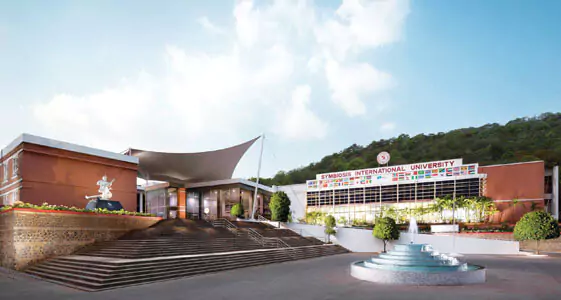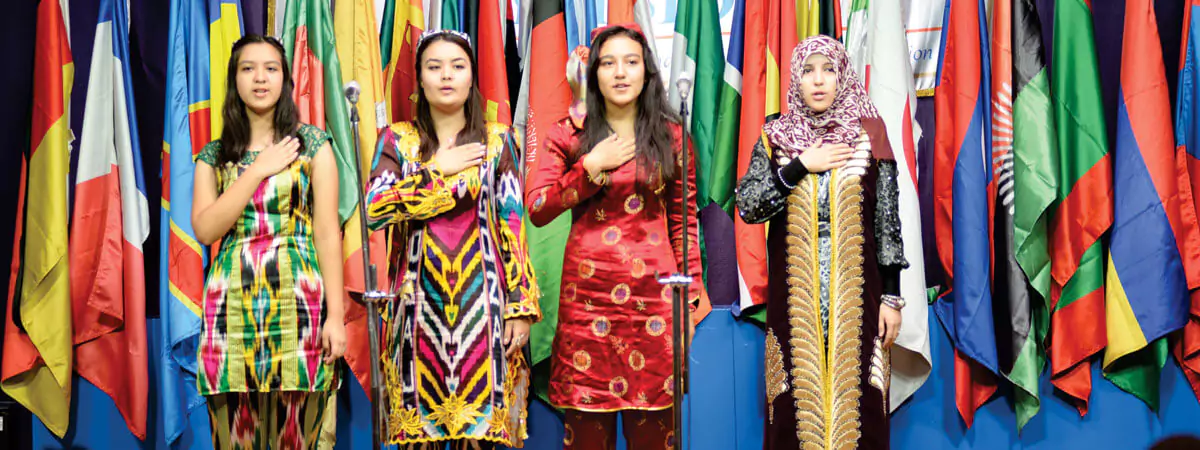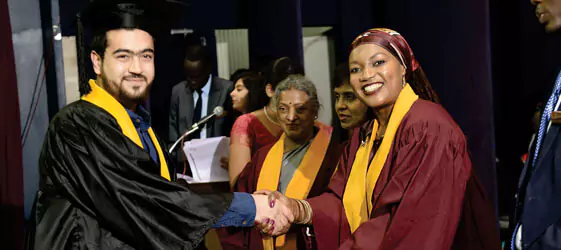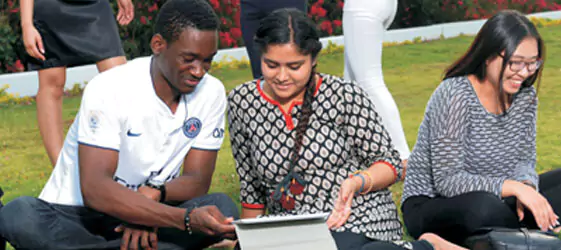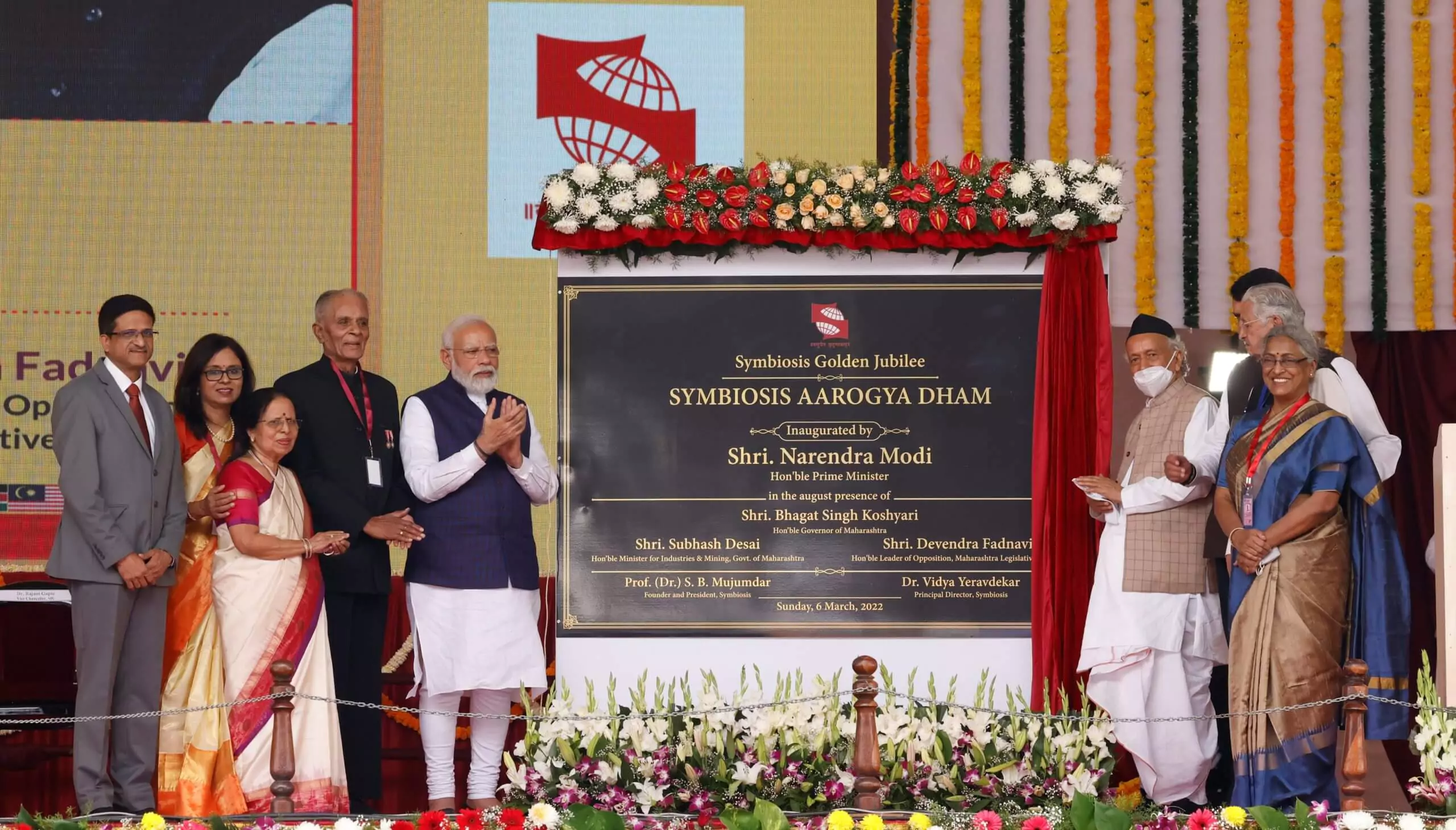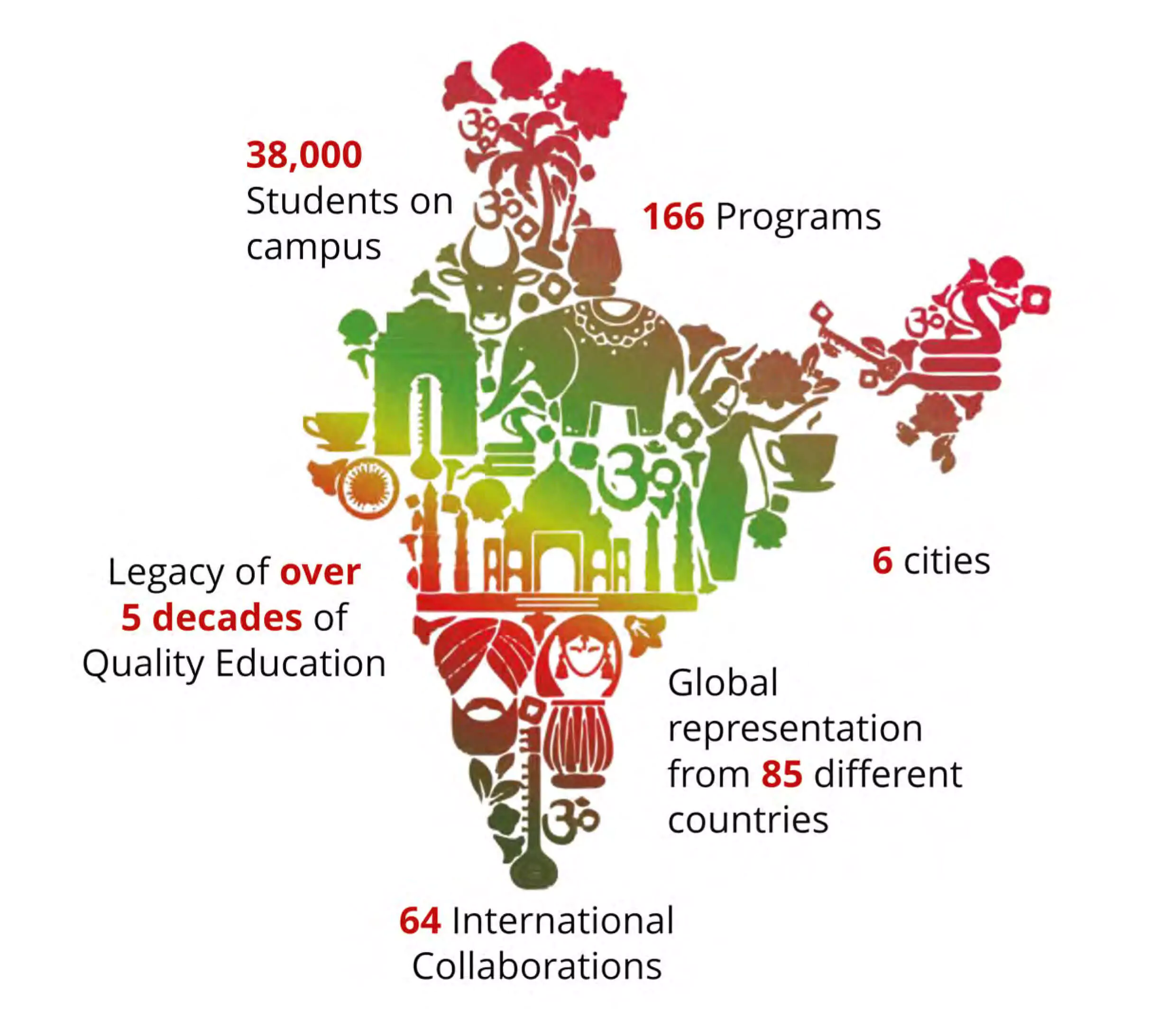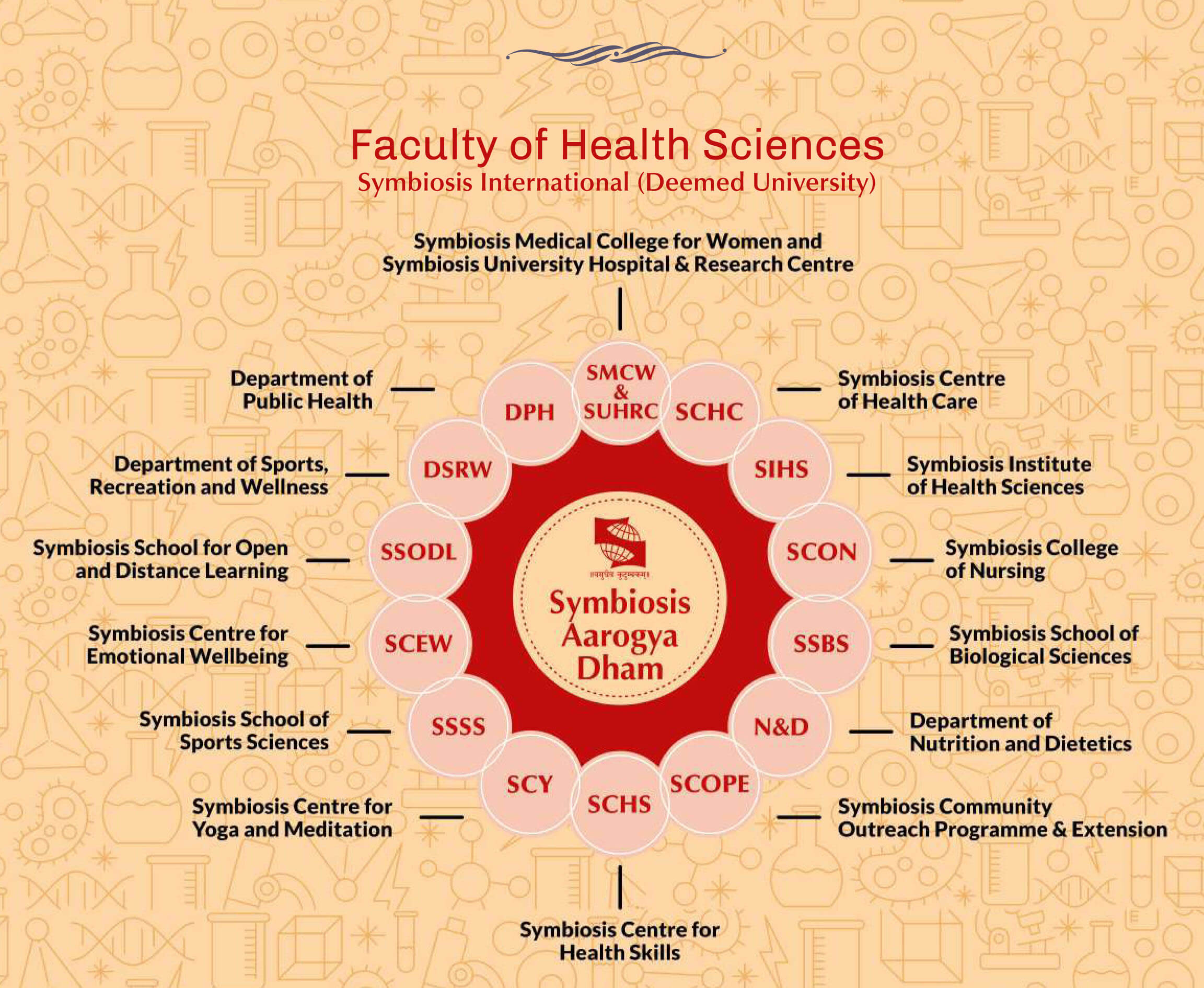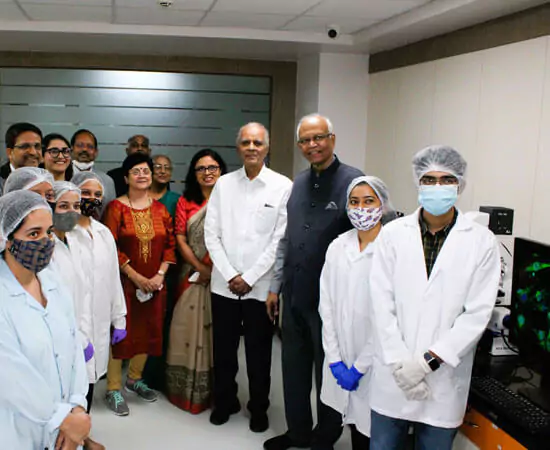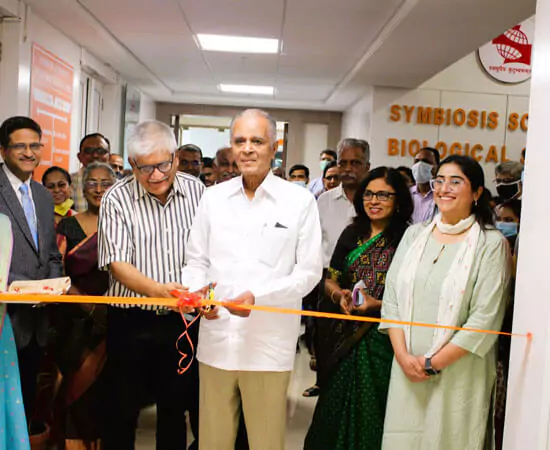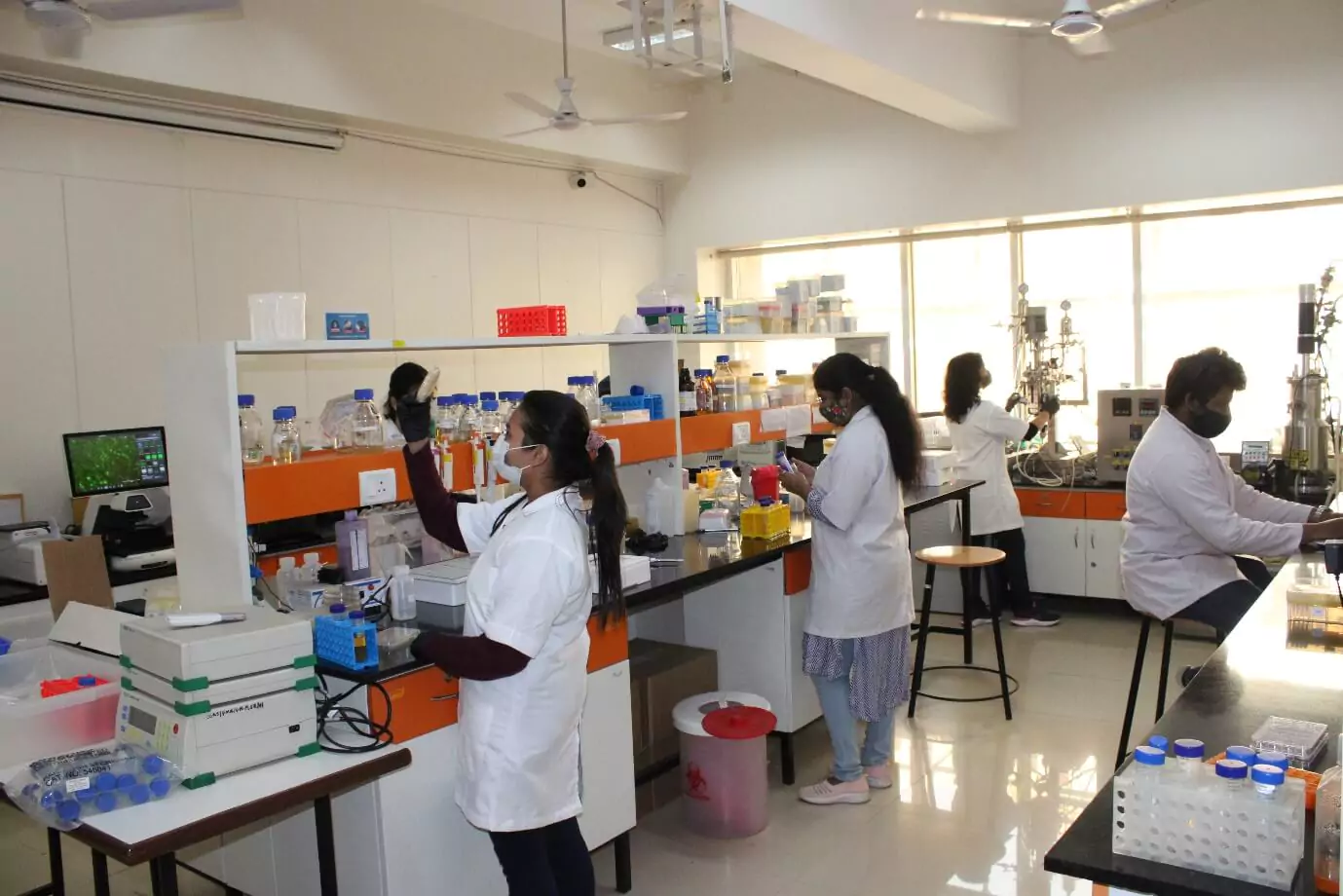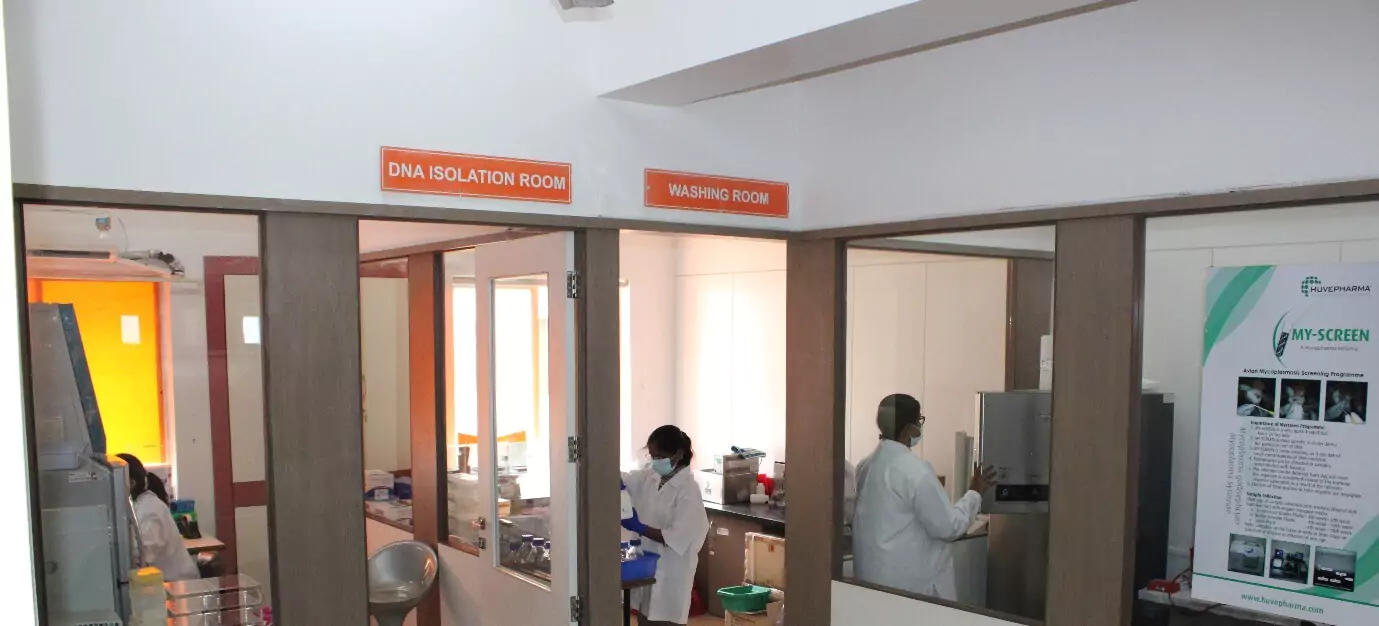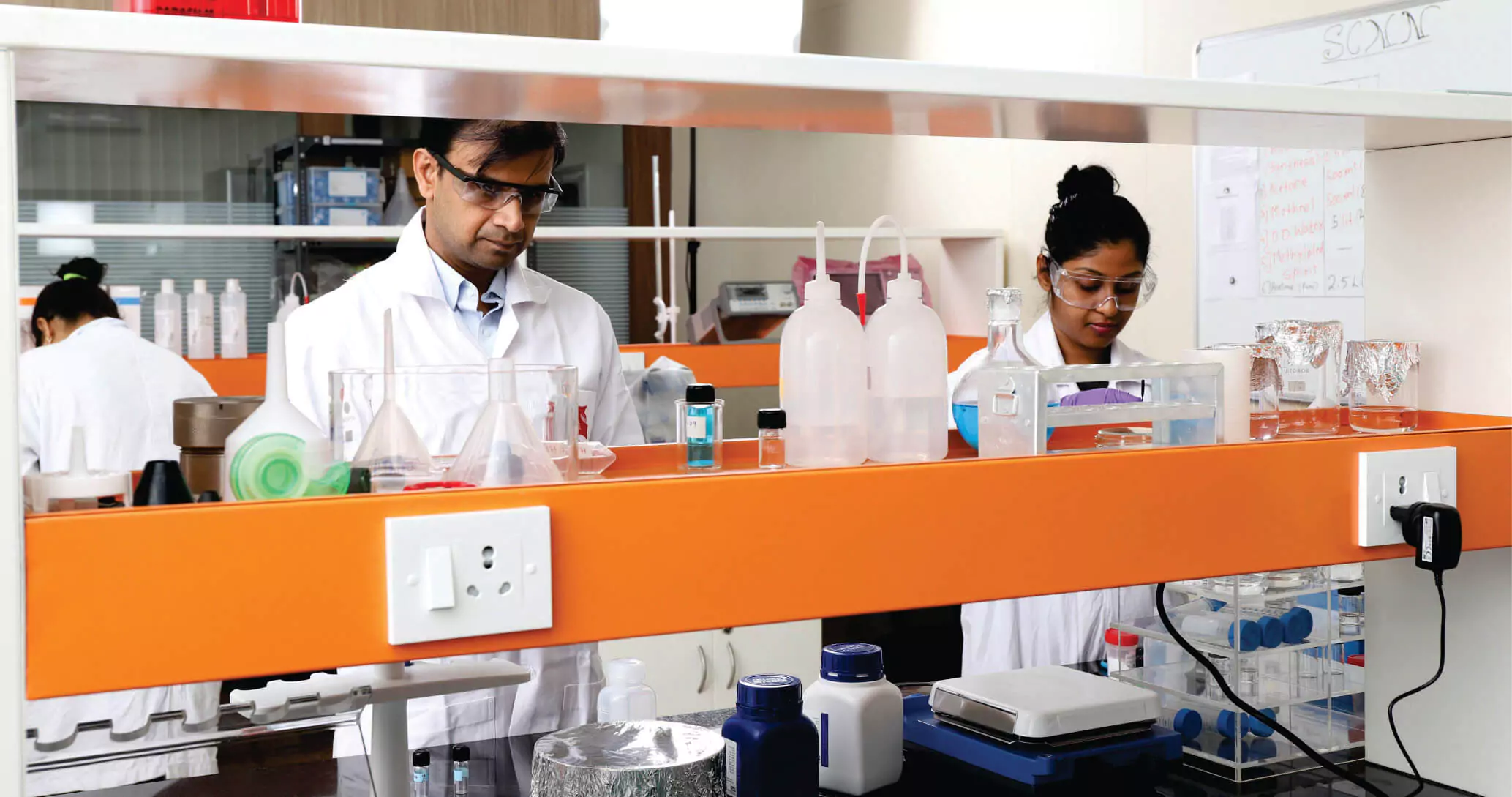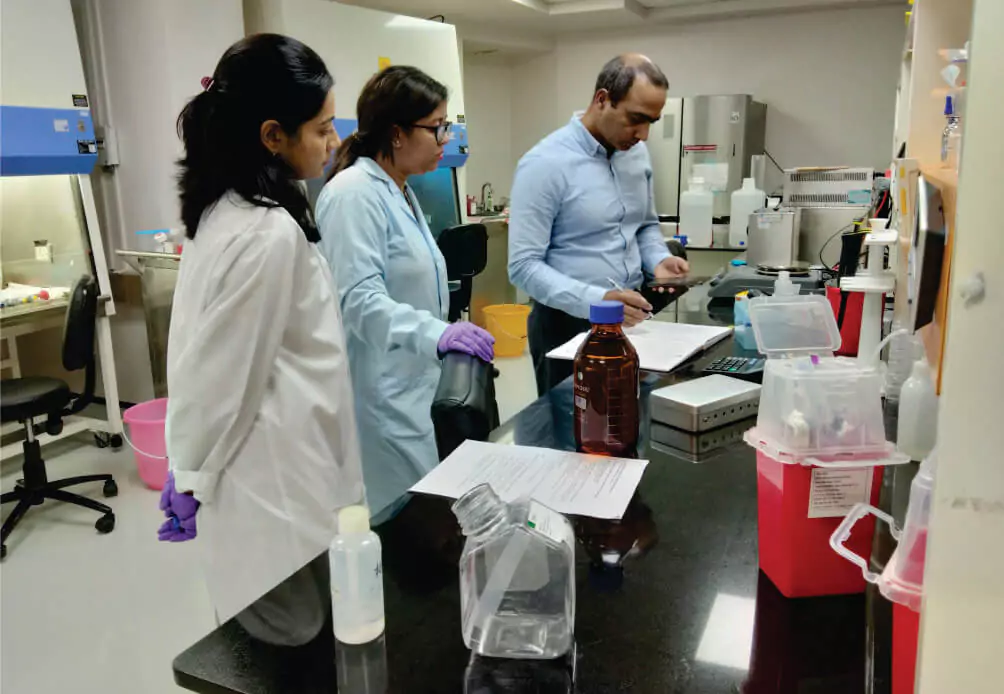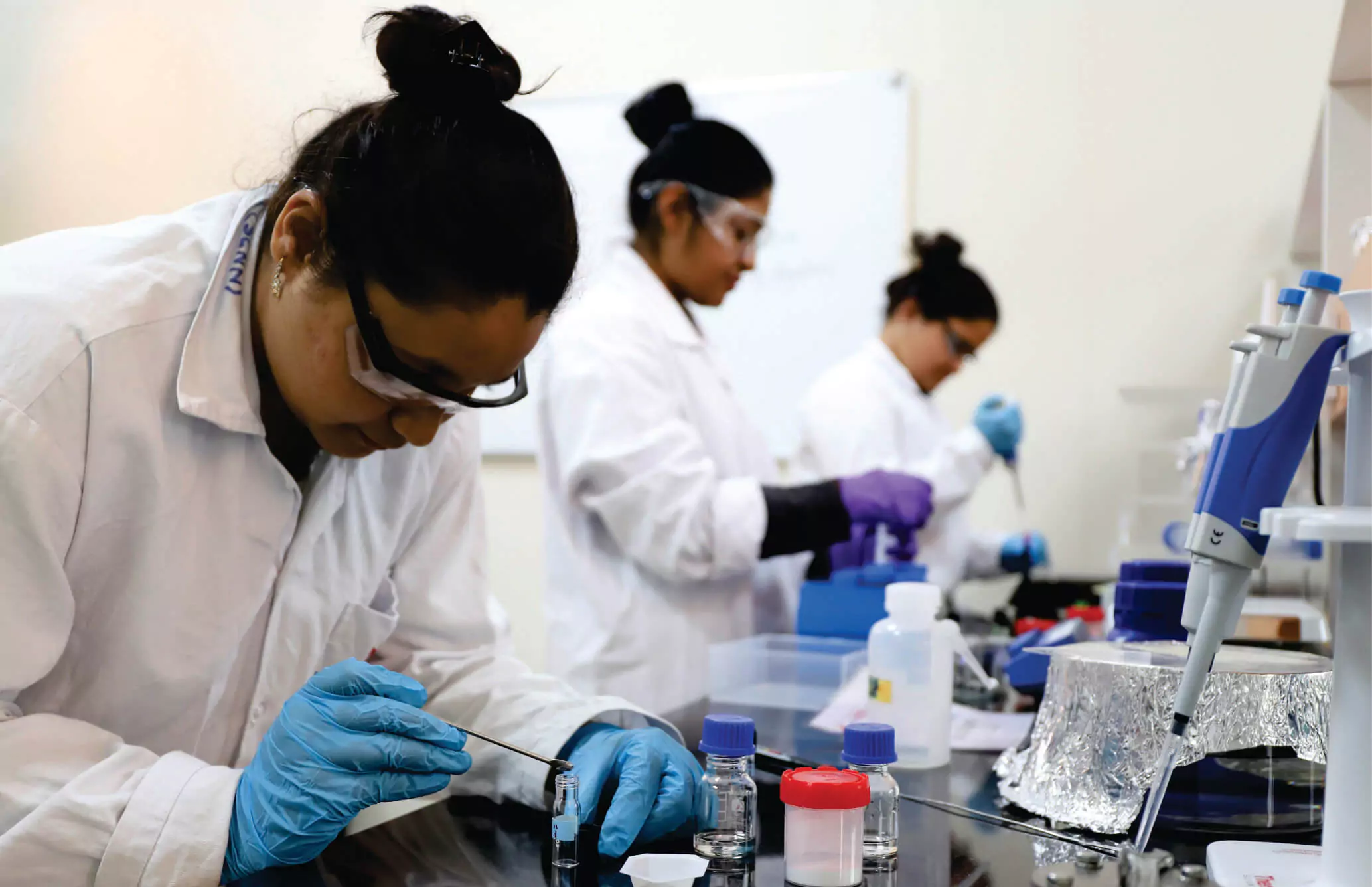Symbiosis International (Deemed University)
ABOUT SYMBIOSIS
Genesis of Symbiosis:
In the words of Dr. S. B. Mujumdar, the founder of Symbiosis, “Symbiosis is an Idea”. Symbiosis is a term in Life Science, meaning 'living together of two different organisms, for the mutual benefit of each other'. Dr. Mujumdar selected this term to name the institution, to emphasise the importance of 'interdependence'. The objective of the Institution was to ensure not only good education for foreign students but also ensure that the students become goodwill ambassadors of India, after returning to their own countries.
'Vasudhaiva Kutumbakkam'
The world is one family.
The 'Foreign Affair' that created Symbiosis
The journey of a thousand miles begins with a single step. The first step usually involves deliberation and much hesitation. The Symbiosis journey however, began with a surge of compassion spurred on by an incident that, in itself, makes a poignant tale.
“It was an afternoon on a hot day. I was standing near the window of my house overlooking the Fergusson hostel block, of which I was the rector. A strange thing happened. A girl walked up to a window of the boys' hostel, quickly handed over something and disappeared. My curiosity was aroused and I kept watching the girl walk up to the window, day after day, and suspected, (like any other rector would), that an affair was going on! So one day, I made up my mind and walked up to the door and knocked. When the door opened, I saw a Mauritian student lying in bed. His face was pale and his eyes seemed to have sunken low. I was puzzled.”
“When I turned to the boy for an explanation, he said, ' Sir, I have an attack of jaundice and am feeling extremely weak. I cannot stand up, nor walk even a few steps. This girl from my country who is my sister brings me home-cooked food. However, since ladies are not allowed to enter the boys' hostel, she hands over the tiffin box through the window'. I was stunned."
“After all, it wasn't the type of 'affair' I had expected at all. I was very much pained and decided something had to be done about this.”
While narrating this story, Dr. S. B. Mujumdar mentions that this was the golden moment in which Symbiosis was born. This 'foreign affair' left a deep impact on Dr. S. B. Mujumdar and led to the establishment of Symbiosis in 1971, as a small organisation for the welfare of foreign students who came to study in the city of Pune. The guiding principle behind establishing Symbiosis was 'Vasudhaiva Kutumbakkam' - The world is one family.
Thus, the Symbiosis International Cultural Centre was established to guide foreign students, mostly Afro-Asian students studying in Pune, and to help forge a bond of friendship between them and the Indian students and citizens of Pune. It also aimed at alleviating some of the problems faced by these students, including accommodation, meals, medical care, coaching, information about the city, and other issues.
From a standalone educational institution established by Dr. S B Mujumdar in 1971 to promote international understanding through quality education, Symbiosis has today grown and now comprises of 62 institutes, of which 38 are under the ambit of Symbiosis International University (SIU) and the remaining consisting of primary and secondary schools (including an International School offering the IB program) are under the Symbiosis Society. These institutions offer programmes in 8 faculties viz. Management, Law, Health & Biological Sciences, Information Technology, Engineering, Humanities & Social Sciences, Media & Communication, Architecture and Design.
SYMBIOSIS INTERNATIONAL (DEEMED UNIVERSITY)
Symbiosis International University (SIU) has been ranked amongst top 50 Universities in India by the National Institute Ranking Framework (NIRF), Government of India. The University has also been ranked amongst the top 250 Universities in Asia and top 110 in BRICS by QS World University rankings survey 2018. The University is re-accredited by the National Assessment and Accreditation Council (NAAC) with a Grade 'A' and CGPA of 3.58 on a four-point scale. The University has been graded Category I by the University Grants Commission (UGC). The Management, Media, Law and Computer Science Institutes have been consistently ranked amongst the top ten in the country.
SIU believes in combining Eastern Wisdom along with Western Dynamism with a stress on imparting moral & value based education. Our core philosophy is based on Excellence, Ethics, Equality, Evidence and Equity. No donation / No capitation is charged against any admission at SIU
About Faculty of Health Sciences (FoHS)
FoHS is a constituent of the prestigious Symbiosis International University (SIU). FoHS has conceptualized & implemented a group of unique, innovative and career-oriented capacity building programmes meant to raise a cadre of healthcare professionals who would ensure delivery of optimum health care services.
Institutes Under Fohs:
- Symbiosis Centre Of Health Care [SCHC]: 1997
- Symbiosis Institute Of Health Sciences (SIHS): 2005
- Symbiosis College Of Nursing [SCON]: 2007
- Symbiosis School Of Biological Sciences [SSBS]: 2011
- Symbiosis Community Outreach Programme & Extension (SCOPE): 2011
- Symbiosis Centre For Health Skills (SCHS): 2015
- Symbiosis Centre For Yoga [SCY]: 2015
- Symbiosis School Of Culinary Arts (SSCA): 2016
- Symbiosis School Of Sports Sciences (SSSS): 2016
- Symbiosis Centre For Emotional Well-Being (SCEW): 2018
- Department Of Sports Recreation And Wellness [DSRW]: 2018
- Symbiosis School For Online And Digital Learning (SSODL): 2019
- Symbiosis University Hospital & Research Centre (SUHRC): 2019
- Symbiosis Medical College For Women (SMCW): 2019
Research Initiative at SIU
Symbiosis Centre for Research and Innovation (SCRI)
The University has established Symbiosis Centre for Research and Innovation (SCRI) to administer and monitor all research programmes and fellowships to scholars, research funding and support for collaboration and publication to the researchers at SIU. The SCRI is a nodal unit for enabling the research activities of SIU fraternity. Research Advisory Committees have been set up in each discipline inviting eminent subject experts in their domain.
Additionally, SIU has established the following research centres to enhance the research output of the University to foster an interdisciplinary approach:
1. Symbiosis Centre for Stem Cell Research (SCSCR)
SCSCR is established to pursue basic as well as translational research in the area of stem cells to explore the potential application of generating stem cells and tissues that could be used for cell-based therapies. The lab is equipped with state-of-the-art instruments such as a Fluorescence-activated cell sorter (FACS), fluorescence microscope, ultracentrifuge, real- time PCR, etc. in addition to all the basic equipment needed for performing stem cell biology experiments. The Centre has focus on three areas: endometrial stem cells, mesenchymal stem cells, induced pluripotent stem cells, and bone/cartilage regeneration.
Ongoing Research Projects:
- Niche-mediated regulation of Hematopoietic stem cells.
- Novel biomaterials for osteo-chondral (bone and cartilage) tissue regeneration
- Tissue-specific differentiation of pluripotent stem cells (ESCs and iPSCs)
- Pathobiology of endometriosis - Establishment of organoid cultures
- Endometrial stem cells
- Regenerative effects of Placental stem cells-derived Evs
SCSCR has so far published 8 research papers (IF= 2 to 13.5, 2 Book chapters). The centre has received research grants from the Department of Biotechnology (DBT) (INR 60 lakhs), DBT-Ramligaswami fellowship (45 lakhs) and DST-SERB (40 lakhs). With the establishment of Symbiosis University Hospital & Research Centre (SUHRC), the Symbiosis Medical College for Women (SMCW) and Symbiosis Health Science Technology Park (SHSTP), the centre is projected to grow into a full-fledged “Institute of Stem Cell Research and Regenerative Medicine”.
2. Symbiosis Centre for Medical Imaging and Analysis (SCMIA)
SCMIA was started with the objective of penetrating multi-disciplinary biomedical research with a focus on medical imaging. As medical Imaging has entered its information era, there has been an increased impetus to understand and quantify the complex information conveyed by biomedical images. Modern computational methods offer the potential for extracting diverse and complex information from imaging data thus quantifying them precisely and therefore overcoming limitations of subjective visual interpretation, and for finding imaging patterns that relate to pathologies as well as aiding treatment planning. These techniques are an invisible aspect of modern clinical studies. Building on this background, the broader objectives of this center are the development of novel computer-based image analysis methods and their application to a wide variety of clinical research studies and Translating the techniques to the clinic thereby aiding early diagnosis and understanding of the underlying pathology.
The focus area for SCMIA mainly includes computational neuroimaging as well as breast imaging. Neuro-imaging (multimodal MRI analysis) includes clinical studies in neurology (Parkinson's and other tremor disorders), gliomas (molecular sub-typing and classification based on MRI) and cognition and behavior in literacy, epilepsies musical learning and bilingualism.
To this end, SCMIA collaborates with multitude of radiologists, neurologists and neuro-surgeons and invests all its workforce towards innovating novel techniques that can support the clinic.
3. Symbiosis Centre for Nanoscience and Nanotechnology (SCNN)
SCNN aims to promote forefront basic and applied research in the fields of Nanoscience and Nanotechnology, with potential applications towards fulfilling national and social strategic needs.
SCNN has developed a network of scientists, medical doctors, engineers and entrepreneurs to work in co-operation to tackle challenges that can only be addressed by a truly multi-disciplinary team. Our aim is to develop a global network for research and innovation and provide leadership in developing affordable smart-technology. With the upcoming Symbiosis University Hospital & Research Centre (SUHRC), Symbiosis Medical College for Women (SMCW) and Symbiosis Health Science Technology Park (SHSTP), SCNN focuses on breakthrough research activities particularly in the field of advanced materials for drug delivery, biomedical diagnostic devices, etc.
Medical diagnostics and monitoring devices aid to diagnose and investigate the causes of various diseases or functional disorders. SCNN researchers collaborate with industry/hospital to focus on developing better, faster, and more affordable medical/diagnostic devices. Current research is focused on biomedical optics for early detection of diseases with emphasis on various types of cancer. This study involves the development of devices based on surface enhanced Raman Spectroscopy (SERS) and fiber optic Raman probes.
4. Symbiosis Centre for Behavioural Studies (SCBS)
SCBS has an overarching scope to conduct interdisciplinary research in management, economics, language studies, design, law, health sciences and technology. The centre studies behavioural aspects such as information processing, decision making and emotional well-being. The Centre promotes interdisciplinary research on the socially relevant problems involving multiple disciplines.
5. Symbiosis Centre for Applied Artificial Intelligence (SCAAI)
The healthcare industry is evolving rapidly with large volumes of data and increasing challenges in cost and patient outcomes. What distinguishes AI technology from traditional technologies in health care is the ability to gain information, process it and give a well-defined output to the end-user. A number of machine Learning and more recently Deep Learning algorithms are employed to develop the assistive techniques in healthcare.
The primary aim of health-related AI applications is to analyze relationships between prevention or treatment techniques and patient outcomes. AI programs have been developed and applied to practices such as diagnosis processes, treatment protocol development, drug development, personalized medicine, and patient monitoring and care. AI based methods can be hugely beneficial as assistive techniques to take the pressure off the clinicians. With the huge population and dearth of appropriate studies particularly focusing on the Asian/Indian population and specific in Indian-subcontinent, there is a need for various research studies involving a number of novel clinical issues and AI.
With the establishment of the SUHRC, SMCW and SHSTP, SCCAI is at an opportune position to work with clinicians and patients to understand the appropriate research questions which can be solved using AI. Our thrust is on applied AI development for problems which will create a meaningful societal impact. In addition, with the expertise available at SCAAI, it is possible to work for variety problems in healthcare domain in collaboration with clinicians and health professionals.
6. Symbiosis Centre for Waste Resource Management (SCWRM)
SCWRM is committed to advancement of knowledge in the field of sustainable waste management for the benefit of the society and environment at large.
Symbiosis Health Science Technology Park (SHSTP)
The objective of the SHSTP is to enable formation of products and solutions that address issues faced by surgeons, doctors and allied professionals followed by formation of a start-up around the product and successful launch in the market as a fully functional and efficient business. The objective is to nucleate and nurture knowledge-based and technological enterprises in an environment that drives research, innovation breakthroughs and business. Additional possibilities for research collaborations, proposals, grants and establishment of on-site R&D facility of multi nationals is also envisaged in the near future.
It aims to provide the entire ecosystem with end-to-end solution to anyone with a novel idea/s in the medical/biomedical domain and enable formation of start-ups. Ideally, the idea should also be commercially viable and have some social benefit. The resulting solutions and products should be of world-class quality and service at costs affordable to at least the “common man” in India; if not the poorest of the poor.
SHSTP can provide the hard and soft ecosystems that can handhold the individual/s from the ideation stage to market launch for enabling FDA approved products that are indigenously developed at competitive costs for the Indian population. Hard ecosystem may include office space, internet, telephony, appropriate scientific instrumentation within SHSTP and other institutes/centers within the Symbiosis Society. Soft ecosystem may include technical and business mentorship by qualified experts, supporting legal, business and financial services and mentorship by qualified experts, access to pertinent leading institutes and entities across the country that can enable long-term success for the start-ups.
SHSTP works in close collaboration with sister institutes within the SIU such as Symbiosis School of Biological Sciences (SSBS), Symbiosis Institute of Technology (SIT) and the outreach arm of SIU viz. SCOPE. Creation of SHSTP Technology Business Incubator (TBI) has been proposed. With the existing research centers and the upcoming SUHRC and SMCW, SHSTP can work with doctors and surgeons in close collaboration to identify their professional challenges and provide best possible solutions for the same.


